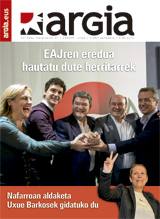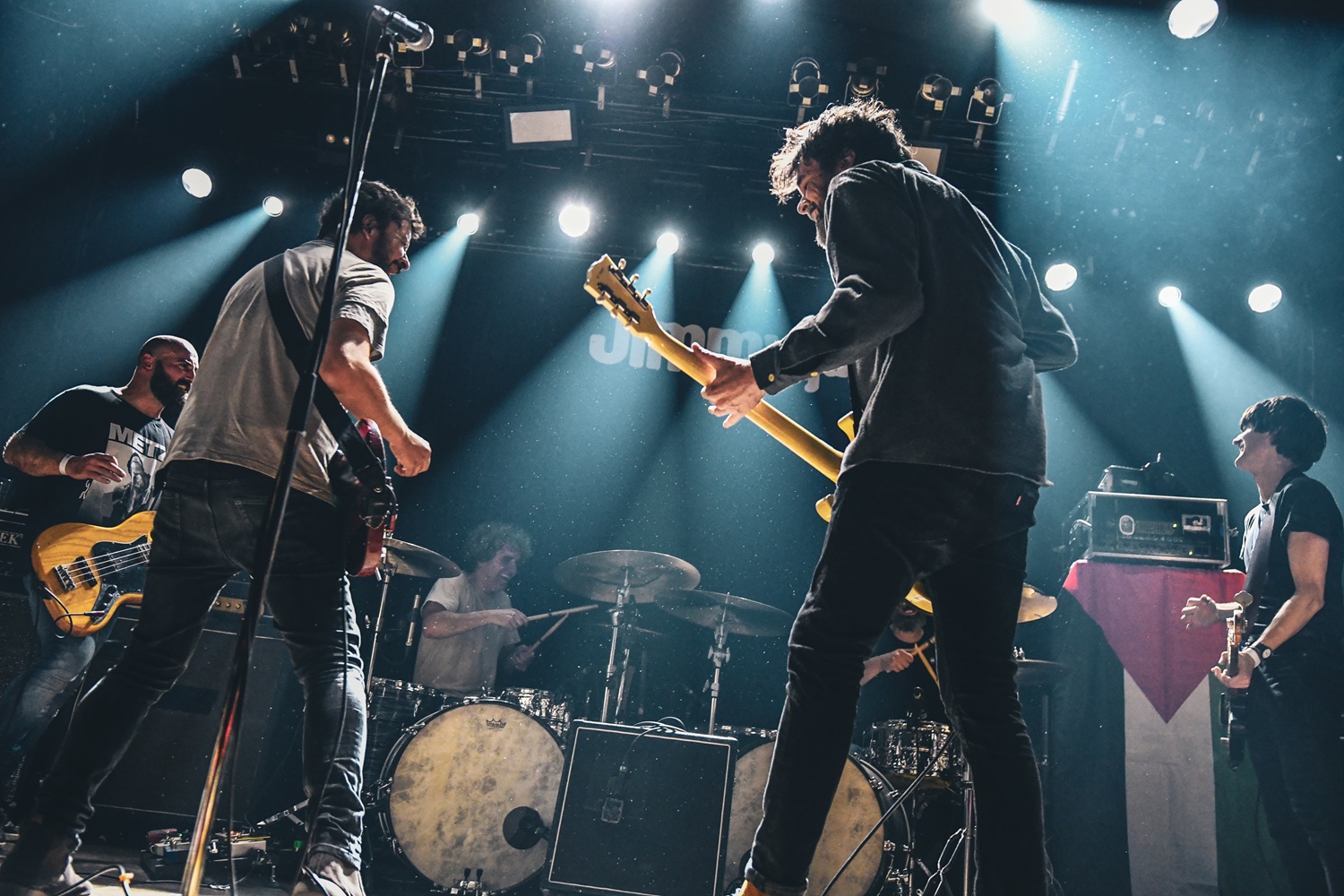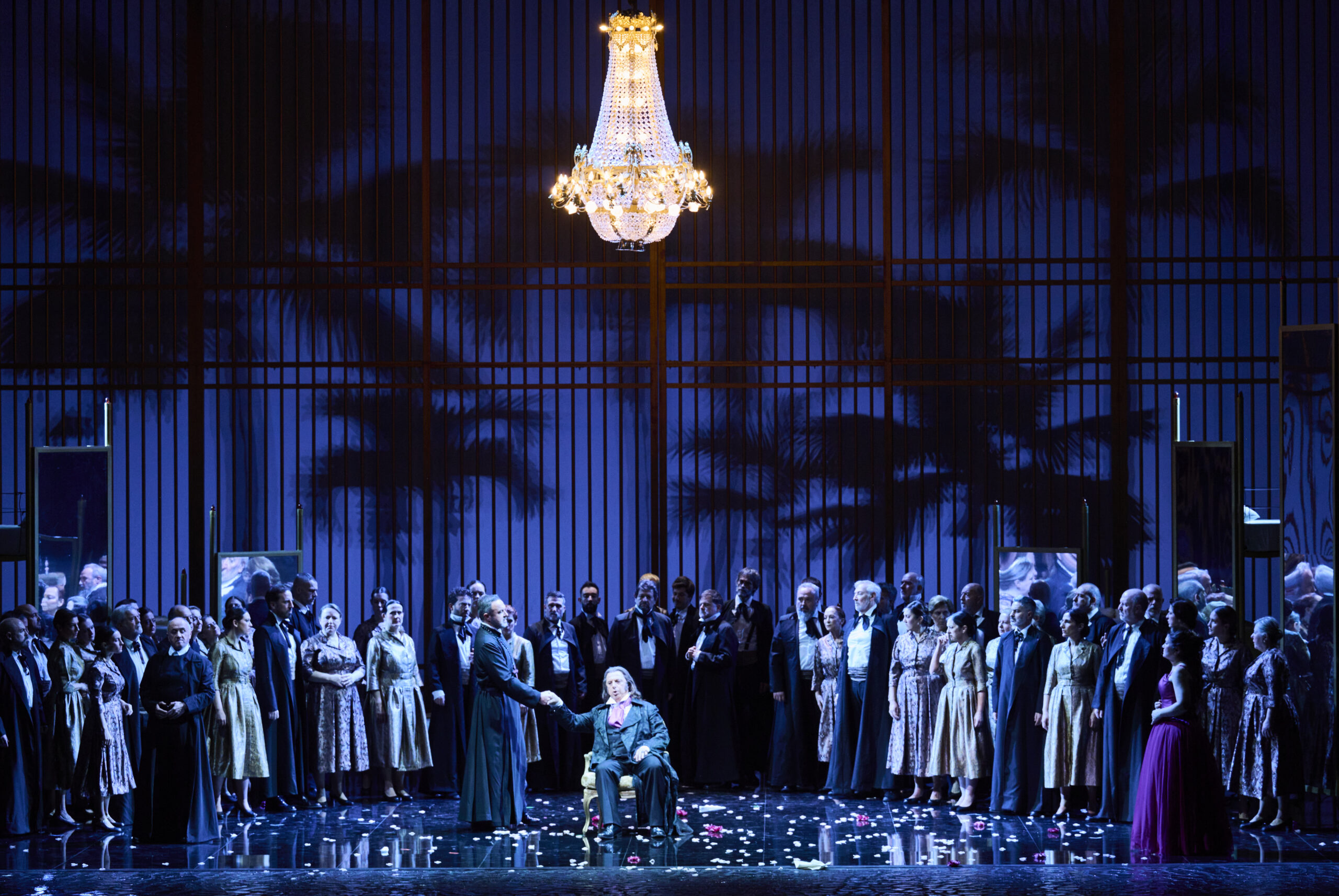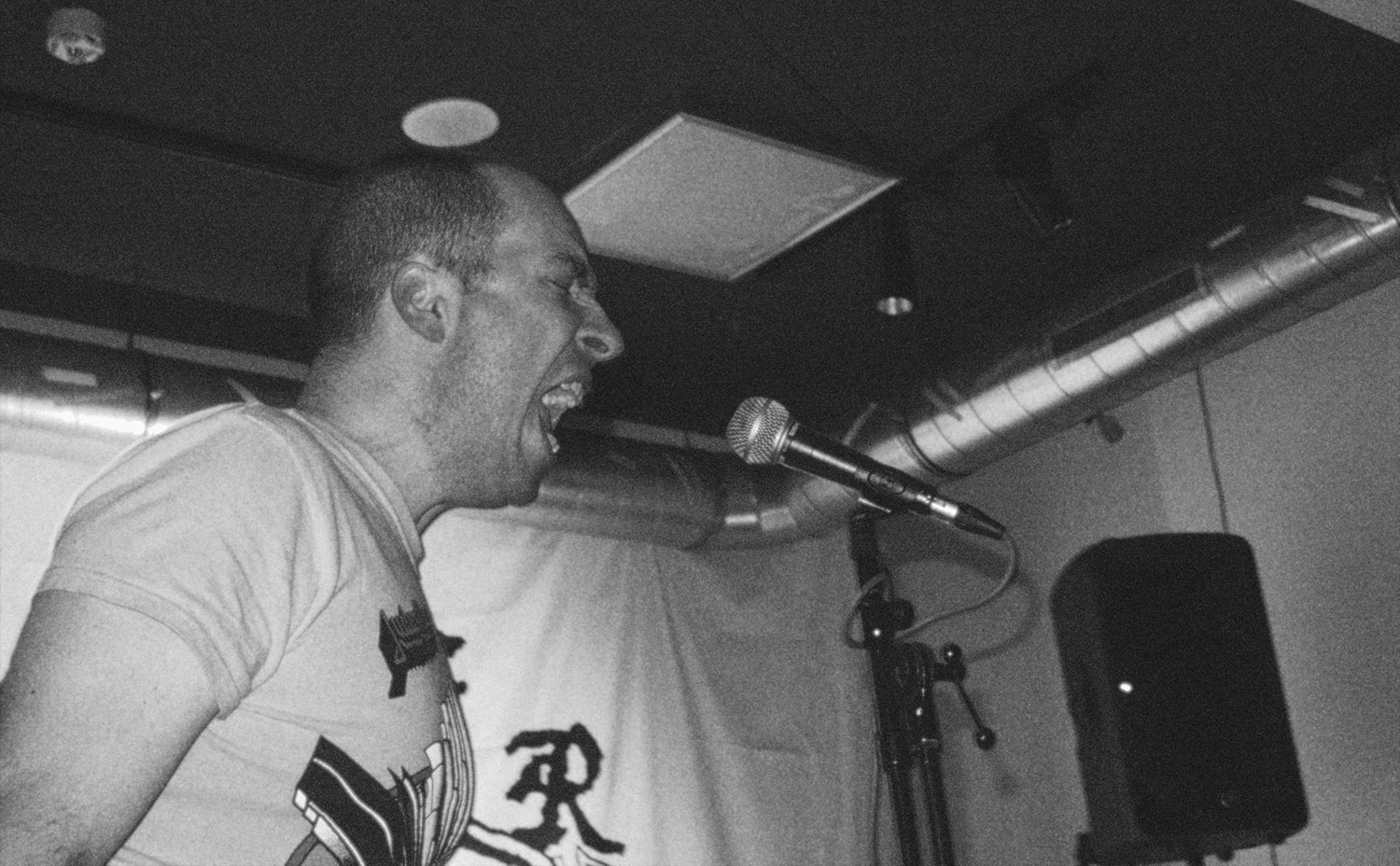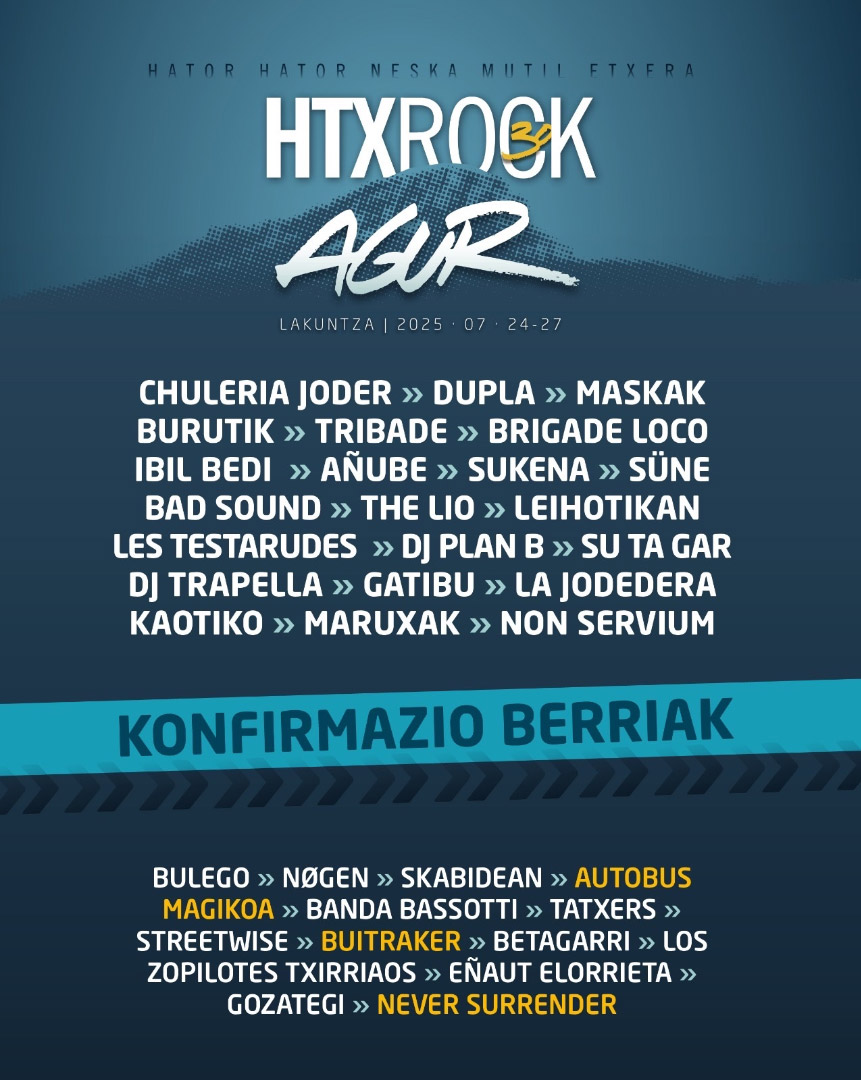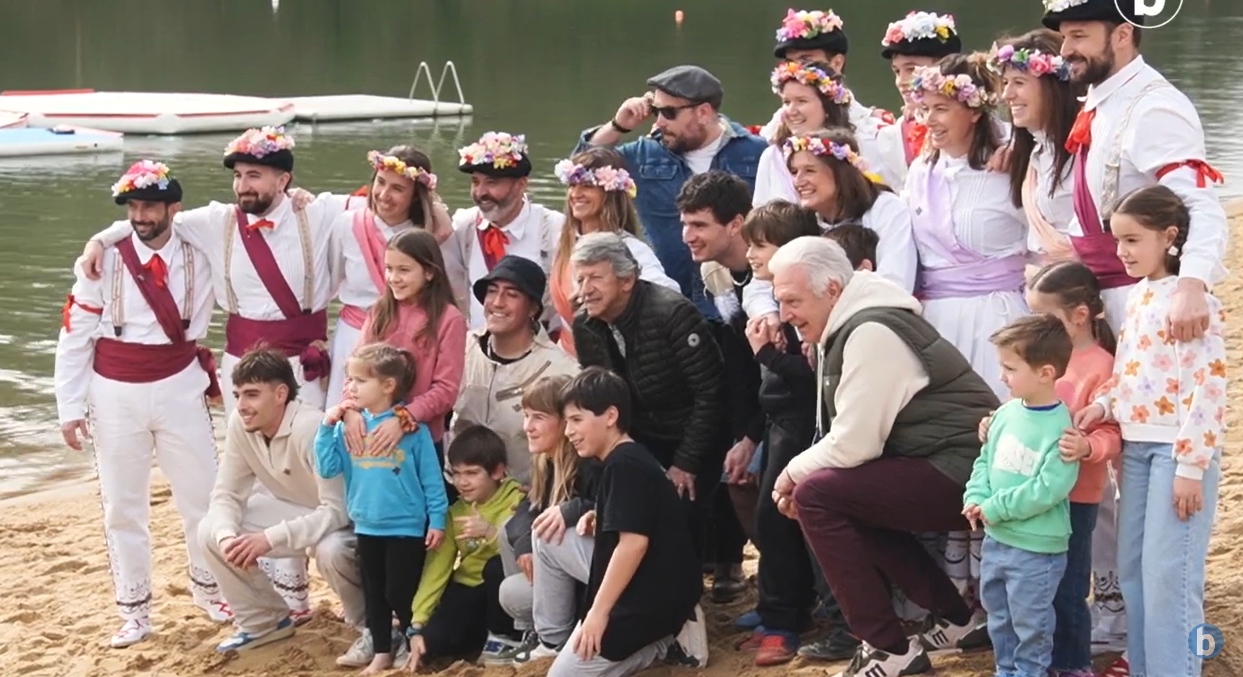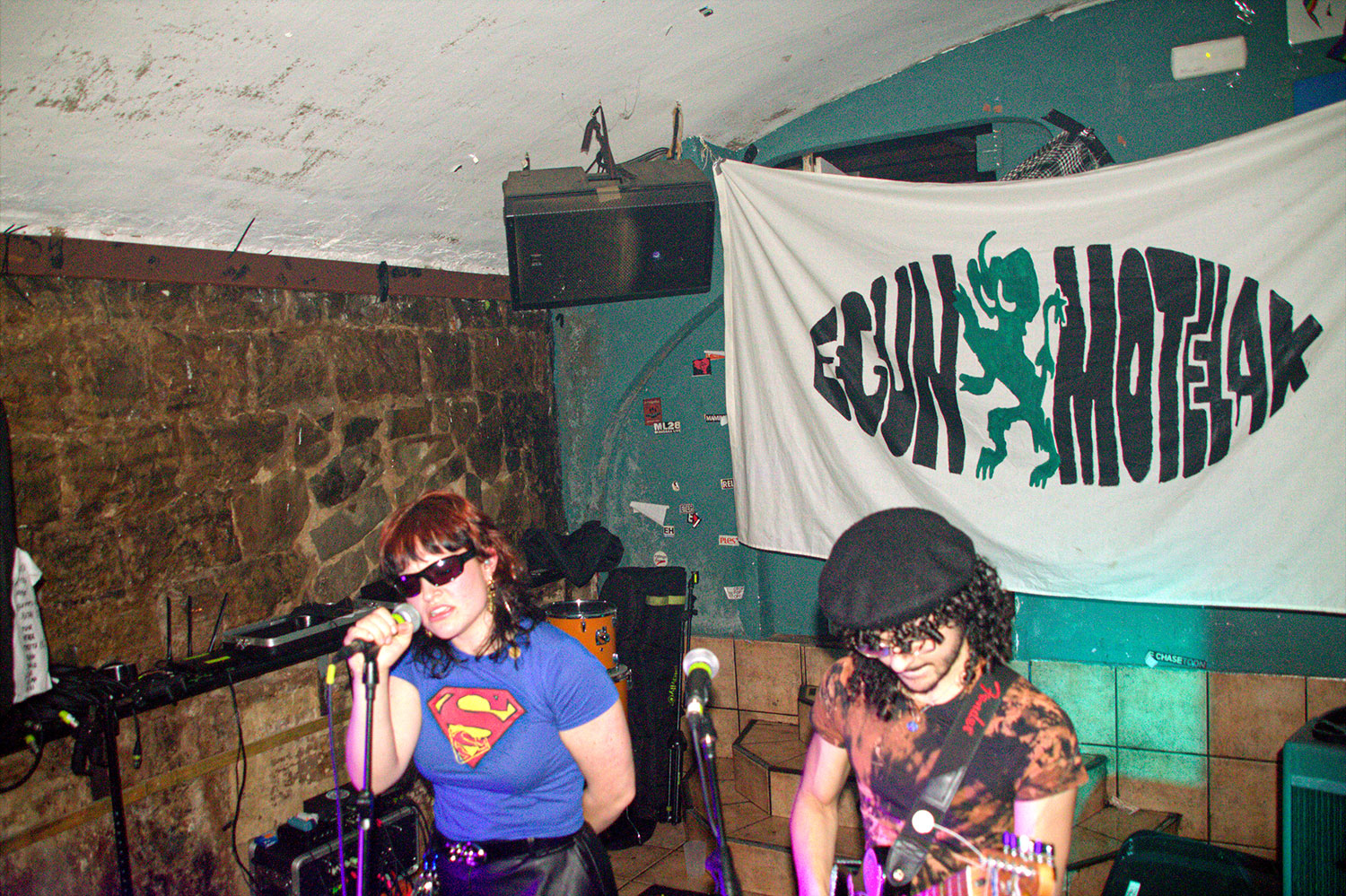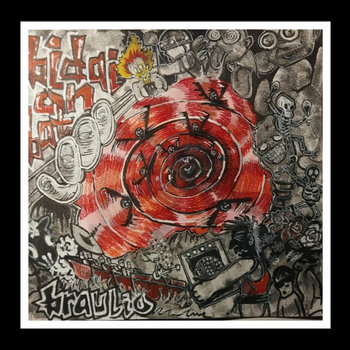"I don't just want to be beautiful, I want to move people, and if I hate myself, I hate myself."
- No folklore, no nostalgia. With the roots on earth, but beyond with the freedom to reach the insides of listeners.
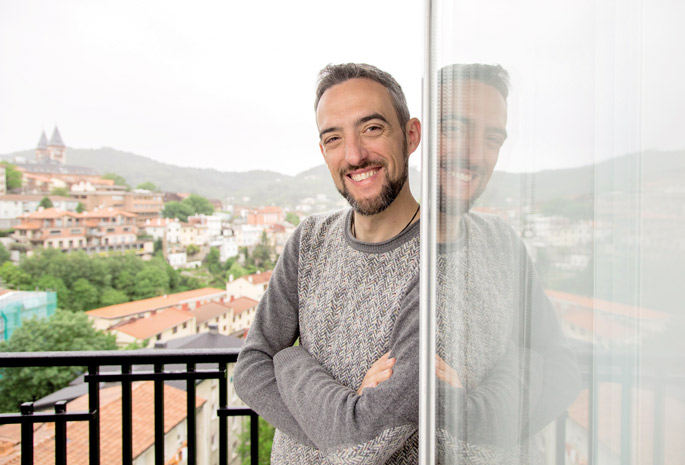
Son of Anhauze. In which family was it founded?
My father is a farmer, he has cows. The mother, who until now was a secretary, has also taken care of her. The father retires, but he goes on with the cows and sells the profits directly. That generation has always been based on work and family, and without work, they don't know what to do. I'm the oldest of three siblings. His younger brother has once again lived in the village two years ago. Tolosa works in a public renewable energy construction company located in Occitania. The company made a proposal to expand the market in Iparralde and in the Biarno region, and lives and works in the village. It's a very interesting bet. I myself thought about making a kind of rural house to combine agricultural work with tourism before I became an artist. So far I have lived in the interior of Euskal Herria and have always felt the need to promote local initiatives. When you're in these cases, you often want to get a policy label, but that doesn't matter to me. More important than being an Abertzale or a right-winger in small towns is to get to know each other and do things together. That strength must be done, because the interior is being emptied. If it is not done, all young people will leave. We have that need for red color, and I believe in it.
So did you start, for example, organizing Anhauze's carnivals in 2007?
I learned how to make joalduna in Donapaleu and wanted to do it in the village, but in our own way. I realized that in Europe there were other characters of joaldun and I found it interesting to create a character of my own with Anhauze's joaldun. In Lower Navarre and in most of the towns of Ipar Euskal Herria the organization of the festivities is only promoted by the young people. The Anhauzen festivities were the only animation of the year in the last decades. Carnivals had not been organized for a long time and I explained to the local youth that it was important to do another animation in the village and that, above all, it had to be open to other generations. On the other hand, I saw that our friend Antton Luku is doing a great job explaining to people what our musical and theatrical customs are and encouraging our diversions. I proposed a reflection to the young people of the town, and so the carnivals got off the ground. We were three at the beginning and the group has been growing gradually. Three days ago. We leave one night, the next day we walk from house to house and the last day we offer a great paella to the citizens. It is something made for the Anhauztarras and it was a necessity. In addition, new buildings were built in the village and the outsiders came to live. Now people have started to participate enthusiastically in carnivals and parties, and people come from the new houses as well. That is very satisfactory.
How long have you lived in San Sebastian?
Since October. In January I married a Aretxabaleta girl and lived there.
A big change?
Yes, but in cities there are also many things that can be done. I'm the son of farmers, and I can't say anything, but there are certain sciences that we should recover. For this, for example, people can gather in small production groups, make some community farms and then distribute what is produced there… However, the logic of extensive agriculture has been the main one. It's always bigger, it's always more objective. On my father's estate, what I see is that they have too much need for European aid. 65-70% of revenue comes from European funds. If that fails, it's over. At the same time, Europe tells them what to plant, what to plant in each place. I understand that it's convenient to get to the supermarket and have everything, but this system has to stop it once and that can be done. I'm not a dreamer, because this is not far from our past. In Kalakan, we're also in that logic, so we only sell the album at the end of the concert, so we can give people live and chat with them.
What do you mean to people?
They must be valued. If we don't give value to our music, who will give it value? An average salesman? People have to know that with the 15 euros they pay for the album we will be able to make another album or change the arrangements. But also, the other message that we want to convey with Kalakan is that making music, singing or having a good time is our responsibility and it's in our hands. People are singing less and less, so to speak. In bars, nobody sings or speaks anymore, because they make music too loud. In the North, it also happens to us, don't believe it. I recently saw that in Garazi. But before that we must ask ourselves: Who's the customer here? Who is the consumer? We have the right to tell the tabernacle that we do not make noise, that we sing and that that is also good for their business. We do not dare and things are left to specialists, professionals.
But today there are many groups of quarries...
Yes, and I like to see her singing in Baiona, singing in Iruñea… and other initiatives. It's very pretty. But I'm surprised to see everybody with the book. That's what we do with Google or Wikipedia: I search for knowledge, I gather information and I share it with my friends for a certain moment, but I don't work with my memory. I agree that singing is a nice thing, but if you really want to share it with your friends you have to internalize it, pass it first through your body. Mentalize. In addition to the air, you have to learn the content. I recognize that some people don't want to do that, but then don't rain if no one sings or participates.
Does the same thing happen to the Basque Country?
Some people who know it by hand don't use it because they don't find its value. I know four languages. I make a helmet: with some, with others in French, English or Spanish and more now that I am in Donostia. (I didn't think Spanish could have so much space in San Sebastian. We were going to party, to the Basque environment and I didn't realize it). I went to school in French. I was born on a farm, my father and my mother are right-wing, and they thought I would learn at home by hand. Now I think you're realizing it's not that easy. Perhaps in the times they have known, but if in our time it is not chosen rigorously, transmission is very difficult. When I was 18, I made a barnetegi in Arantza. I needed to learn and do that force. This helps me a lot in everyday life. I want to focus on my life. I don't impose it on you. If you don't need that, it's your right, but I want to do it for me. You do not impose anything on me either. Things are lost, and I want to tell people to do whatever they want, but to be aware of the consequences of our choices. Language is a choice, like many others. I, for example, don't eat wheat. It's my choice, and I don't spend my life explaining to people how harmful wheat can be to the body.
The Kalakan group is based on traditional singing, but then innovations are made in a very free way.
It's important for me to be free. Kalakan comes from a reflection and from the advice of the Labèque sisters. The group has gradually been formed. We started playing Ravel's bolero in the most beautiful classic rooms in Europe with the Labèque sisters, our txalaparta and our drums. From the beginning we were asked to sing something and from the first day it was a success. We got to the very formal world of classical music with our traditional three-baserritart song and our txalaparta, and people were flipping. We gave them our illusion and the Labèque sisters, especially Kati, told us from the very beginning that we had a treasure. We had to work on that and then create new things. Let me tell you even more: we were talking about a percussionist at the Baiona Conservatory, who played the box, he was the wise musician, but we were told that we had to say it wasn't the one in the region. In the end we told Jamixel, and soon after we realized that with him everything was easier because it is a country, not only does it speak Basque, but it also knows what we wanted to say and how. That's when our first album came out. It was that force that made Madonna an illusion. Madonna's musicians have strengthened ours with their instruments, promoting the harmony of the voices or increasing the sound of our drums by battery. Our strength is to be able to emote people with voices and drums. That's our identity, and we believe in it.
You have learned to sing at home. Is transmission weaker in the South?
In our society, the song is becoming something spectacular. It's not something you just live. I have a project in this regard: “Roots and outbreaks.” I have met a Portuguese musician and filmmaker, Tiago Pereira, son of the musician Julio Pereira. He started rolling regular people singing or playing music in different places. He has already made 1,800 videos. I flipped to see the diversity of Portugal. The people in this video aren't good singers or musicians, but they live a lot inside and something comes to you. That made me think about where we were based: the song that everybody sang at any time, or the air that they whistled. Music has come from there, but we don't value it. So I want to do the same thing here in Euskal Herria. I think there is still transmission in Iparralde, but we have to do pedagogy explaining what it is, what are the freedoms, the masks of Ziburu, the shepherds, the Bertsolarism... It is important to explain it to the new generations and it is difficult. It's a fight.
Every two years the members of the association Aldudarrak perform a recital around a musician or group (Imanol Kantuz, Oskorri Kantuz…), and in these kinds of meetings I tell them that we do not always have to stop at the show. The goal is to enjoy the songs. If you start introducing music instruments, you limit the way you sing. And ours is to sing freely. Traditional singers breathe where they want, and that's beautiful. Mixel Ducau, with his guitar, follows Erramun Martikorena and has to be like that. Look around you and see how few people play songs like Jacques Brel, you have to appreciate that. Musicians have to help the singer, not tell him what he has to do. The traditional song is a matter of identity: you're me and I'm me and I don't have to rape you to be me. That brings plurality, and that's why you see characters in that Pereira video. There's no copy here, and here I see a lot of copies.
Any special songs in your life?
When we were preparing the tour in New York, for example, I had the need to learn and sing the song “Agota”. And I saw a sense in it. It was the first time I learned a song and assimilated it so much. It was very intimate. I think that story that I have so interiorized I'll remember my whole life, and I know that with that song I'm going to surely emote somebody.
What are we going to find on your second Elementuak album?
Simplicity. Hollow voices, percussions, albokas, a breath from start to finish. There are 14 songs of different formats and content. Some are very old and some are new. The goal is always to send people a message: the relationship between the mother and the earth or between the mother and her child, for example. The direct also offers these kinds of emotions. We need to take care of our roots and, at the same time, we need modernity, look outside, get in touch and inspire ourselves from the outside.
Thierry Biscary, Ttirritt, Nafarroa Behereko Anhauze herrian sortua, 1976ko agorrilaren 29an. Paxkal Indorekin Kalakan taldea sortu zuen 2009an. Labèque ospe handiko ahizpa piano jotzaile lapurtarrekin hasi zen Kalakan kontzertuak ematen Europan barna. Haien bidez Madonna ezagutu zuten eta honek 2012ko bere mundu birarako kontratatu zituen “Aldapeko” kanta emateko, besteak beste. Zazpi hilabetez 88 emanalditan parte hartu zuten. Areto txikietan aritzetik 50.000 ikusleren aurrean kantatzera pasa ziren bat-batean. Bira bukatutakoan haien bidea jarraitu eta iaz 58 kontzertuko bira egin zuten Europan eta Asian lehen aldiz. Erroetara itzultzeko beharrak Elementuak bigarren diskoa grabatzera eraman ditu.
“Gu saiatzen gara jendeari azaltzen inportantea dela interpretatzea, sinplea eta autentikoa izatea. Ez gara folklorean ari. Madonnak zergatik hautatu gintuen, bestela? Hori ezean, gelditzen zaizuna irudi polit bat da. Jendea kantaldi hori kontsumitzera etortzen da eta edertasun horretan gelditzen da. Nik ez dut bakarrik ederra izan nahi. Nik nahi dut hunkitu jendea eta gorroto banau, gorroto nau. Nahi diet zerbait eman eta horretarako interpretatu egin behar da. Ezin duzu eman ‘Eperrak’, adibidez, country moduan. Ez du zentzurik”.
Bizitza eztia
Verde Prato
Plan B Records, 2024
--------------------------------------------------------------
Ousmane Sembène zinemagile senegaldar ospetsuari galdetu zioten ea bere pelikulak Europan ulertzen ote ziren. Erantzuna, epikoa: “Izan gaitezen... [+]
Inoren Ero Ni + Lisabö
Noiz: martxoaren 14an.
Non: Gasteizko Jimmy Jazz aretoan.
----------------------------------------------------
Izotz-arriskuaren seinalea autoko pantailatxoan. Urkiola, bere mendilerro eta baso. Kontzertuetara bideko ohiko errituala: Inoren... [+]
FITXA
Zer: OLBEk antolatutako Gaetano Donizettiren ‘La favorite’ opera.
Nork: Euskadiko Orkestra Sinfonikoak (zuzendaria: Riccardo Frizza) eta Bilboko Operaren Abesbatzak (zuzendaria: Boris Dujin).
Noiz: otsailaren 18an.
Non: Bilboko Euskalduna Jauregian.
Olor
Noiz: martxoaren 9an.
Non: Bilboko Sarean espazioan.
---------------------------------------------------------
Esperantza. iz. Nahi edo desiratzen dena gertatuko delako edo lortuko delako uste ona.
Izen horixe jarri zion Jokin Azpiazu Carballo Olor ermuarrak bere... [+]
22 talde gehiago iragarri dituzte Lakuntzan uztailean izanen den HatortxuRockerako: Bad Sound, Dupla, Su Ta Gar, Chuleria Joder!, Brigade Loco, Leihotikan, Burutik, Tribade, Maskak, Les Testarudes, Non Servium, Añube, Dj Plan B, Gatibu, DJ Trapella, La Jodedera, Süne,... [+]
Bidea da helmuga
Kokein
Balaunka, 2024
--------------------------------------------------
Eibarko rock talde beterano hau familia oso desberdinetako lagunek osatu zuten aspaldi eta ia fisurarik gabe hamarkadatan eutsi dio. Izan ditu atsedenak, gorputzak hala eskatu... [+]
Elgarrekin izena du Duplak egin duen aurtengo abestiak eta Senpereko lakuan grabatu zuten bideoklipa. Dantzari, guraso zein umeen artean azaldu ziren Pantxoa eta Peio ere. Bideoklipa laugarrengo saiakeran egin zen.
Duela 150 urte, 1875eko martxoaren 7an jaio zen Maurice Ravel musikagile eta konpositorea, Ziburun. Mundu mailan ospetsu dira haren lanak, bereziki Boleroa. Sarri aipatzen da Parisen bizi izan zela, kontserbatorioan ikasi zuela aro berri bateko irakasleekin, munduko txoko... [+]
Zuloa
Merina gris
Sonido Muchacho, 2025
-------------------------------------------------------
Euskal Herrian ez da orain arte horrelako musika elektronikorik egin. Esango nuke Merina Grisek historian euskaraz egin den elektronika eta hyperpop diskorik landuena egin... [+]
Gazteagotan baino lotsa handiagoa dauka, baina horrek ez dio saltsa askotan ibiltzeko gogoa kentzen Leire Zabalza Santestebani (Iruñea, 1990). Beste gauza askoren artean, Motxila 21 musika taldeko kidea da. Nabarmendu du musika gauza asko aldarrikatzeko bide izan... [+]
Bidai on bat
Braulio
Autoekoizpena, 2024
-----------------------------------------------------
Nik ez nioke talde bati Braulio izena jarriko; eta seguruenik inork gutxik hasiko luke lan bat sei minutuko iraupena duen kanta batekin. Baina hauei parra die eta horri esker... [+]









